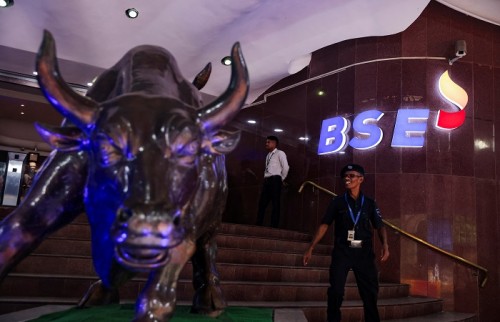PE investments in real estate surge 15% YoY to USD 3bn in H1 2024; Warehousing accounts for 52% : Knight Frank India

Follow us Now on Telegram ! Get daily 10 - 12 important updates on Business, Finance and Investment. Join our Telegram Channel
Knight Frank India, the leading international property consultancy, in its latest report - Trends in Private Equity Investment in India: H1 2024, stated that private equity (PE) investments totalling USD 3 billion (bn) have been made in Indian real estate in the first half of 2024 recording an increase of 15% YoY from USD 2.6 bn in H1 2023. Warehousing sector accounted for largest share of 52% of total PE investments in January – June 2024, followed by residential (29%) and office (20%). PE investments in the residential sector also saw a significant increase of over 209% to USD 854 million (mn) in H1 2024 from USD 277 mn in H1 2023.
Knight Frank India cited a shift in investor dynamics and sectoral preferences for private equity investments into Indian real estate sector. The office sector, which received the highest share of PE Investments since 2018, was surpassed by the warehousing sector, which became the most popular, attracting more investment than the combined totals of the office, retail, and residential sectors.
Mumbai dominated the PE investment landscape as the city witnessed a significant increase in PE investment inflows rising from USD 1,242 mn in H1 2023 to USD 1,701 mn in H1 2024. The warehousing sector accounted for 88% of the total PE investments in Mumbai, amounting to USD 1,500 mn while the residential sector contributed 12% amounting to USD 201 mn.
Bengaluru received approximately 20% of the total PE investments, totalling USD 581 mn in H1 2024. Around 69% of these investments, amounting to USD 403 mn were dedicated towards the residential sector. The remaining 31% or USD 178 mn, were invested in Office sector.

Shishir Baijal, Chairman & Managing Director, Knight Frank India, said, “India has been favourably viewed for investments, especially in the last decade, due to economic stability and growth. However, recent economic conditions and higher inflation have led funds from western economies to adopt a wait-and-see stance. However, Indian commercial real estate continues to thrive due to factors like return to work, rising office absorption and strengthening rental values. Similarly, a year on year strengthening of residential market and continued consumer activities in retail further bolstered by economic growth has incentivised funds to adopt a long-term perspective towards investment in real estate. Looking ahead, we expect some easing of conditions in the western world which will bring back the investments from global players. This, combined with India's growth trends, is expected to lead to increased investment activity from global funds.”

Investment in the warehousing segment showed a significant upward trajectory in H1 2024, reaching USD 1532 mn, a remarkable 176% increase from the USD 555 mn recorded in H1 2023. Geographically, Mumbai and Chennai were the primary beneficiaries, attracting USD 1,500 mn and USD 32.3 mn respectively in the warehousing sector.
City wise PE investments in warehouse sector

Warehousing sector received investments worth $ 1532.3 mn in H1 2024

The warehousing sector emerged as the leader receiving highest investment in H1 2024, rising sharply to USD 1,532 mn, from USD 555 mn in H1 2023, albeit backed by a single deal of USD 1,500 mn. PE investors are actively engaged in the warehousing market, particularly targeting subsectors such as e-commerce, logistics, and 3PL (third-party logistics) facilities. Warehousing sector is experiencing robust growth due to the burgeoning e-commerce industry and an increasing focus of the companies on supply chain optimisation.
The inherent demand for warehousing due to growing consumerism and manufacturing coupled with supportive government policies and growing demand from various industries, make it a compelling proposition for PE investors. As the market matures and overcomes existing challenges, the warehousing sector is poised to play a pivotal role in shaping the future of Indian real estate, contributing significantly to the country's economic growth and development.

The residential sector attracted an investment of USD 854mn in H1 2024, marking a staggering 209% increase. Geographically, investments in the residential sector were spread across India, with Bengaluru leading with USD 403 mn, followed by Mumbai with USD 201mn, and Delhi-NCR with USD 97 million. This distribution of investment underscores the nationwide appeal and potential of the residential market.
PE investments received across India in Residential Sector

H1 2024 saw PE investors adopting a more diversified approach, unlike H1 2023, where investments were mainly directed toward under-construction projects. A significant portion of investments went into early-stage positions, reflecting the growing confidence in the sector's future potential.
Investments observed both in under-construction properties and new developments
H1 2023

H1 2024

Residential sector received investments worth $854 mn in H1 2024


The office sector received USD 579 mn in investments during H1 2024 with a a clear preference for ready assets. A total of 77% of investments were directed towards completed projects, while only 23% allocated to under construction developments in H1 2024. The office market observed a substantial 67% YoY decline in H1 2024 compared to the previous year, reflecting the changing dynamics of the market. Hyderabad, Bengaluru and NCR emerged as leading investment destinations for office investments in H1 2024. Hyderabad received the largest volume of investments 45% of the total PE investments in office sector.
PE investments received across India in Office Sector


Registered Alternative Investment Funds (AIFs), privately pooled investment vehicles regulated by the Securities and Exchange Board of India (SEBI), have become a major force in the Indian real estate market. Since January 2021, a series of real estate-focused AIFs have announced plans to raise a staggering USD 8.2 bn from investors. So far, they have successfully secured around USD 5.3 bn, reflecting increasing confidence in the sector's potential. These AIFs have adopted a diverse focus, targeting residential, commercial, and logistics assets, with most investments concentrated in Tier 1 cities, where demand and growth prospects are the strongest.

Between January 2021 and the first half of 2024, Indian private equity investors have infused approximately USD 3.3 bn into the Indian real estate market across various sectors. However, with a total of USD 5.3 bn raised during this period, investors currently have about USD 2.0 bn of undeployed funds available for deployment.
Harry Chaplin Rogers, Director of International Capital Markets, Knight Frank India said, “Private equity investments in real estate are expected to remain robust in the foreseeable future, with a substantial pipeline of both undeployed capital and real estate assets. An estimated USD 2 bn is yet to be deployed from USD 5.3 bn raised for real estate in recent years. The outlook towards India remains favourable among global funds and with the turn of interest rate cycle in western economies we anticipate that the second half of 2024 will witness strong momentum on real estate investment flows in India.”
USD 2 bn waiting to be invested

Available capital, coupled with expected return of foreign investment inflows, to spur growth going ahead. This reserve of undeployed fund indicates potential for future investments in the Indian real estate market. As these funds aim to maximize returns and capitalize on emerging opportunities, we can anticipate increased investment activity across various market segments. The convergence of funds from domestic PE investors and the projected influx of foreign capital sets the stage for accelerated growth in the Indian real estate market.

The Indian real estate market is poised for robust growth in the coming years. The warehousing sector emerged as a key player in H1 2024, driven by the expanding e-commerce industry and government initiatives to improve logistics operations. The residential sector, bolstered by strong demand and increased involvement from domestic PE investors, is a major growth catalyst. This trend is expected to continue, driven by India's growing population, rapid urbanisation, and favourable governmental policies.
Although the office sector faced a slowdown in investments in the first six months of 2024, demand for Grade A office spaces in prime locations remains strong, led by Global Capability Centres (GCCs) and India-facing businesses.
The rising influence of domestic PE investors, especially in the residential sector, highlights confidence in the market and a better understanding of local dynamics. With strong domestic fund activity and potential foreign investment resurgence, the market outlook is promising.
Above views are of the author and not of the website kindly read disclaimer
























